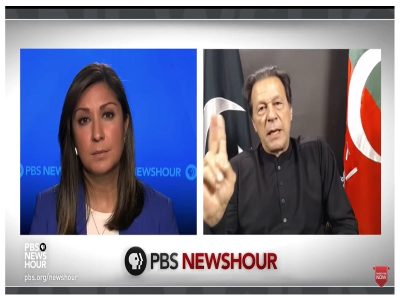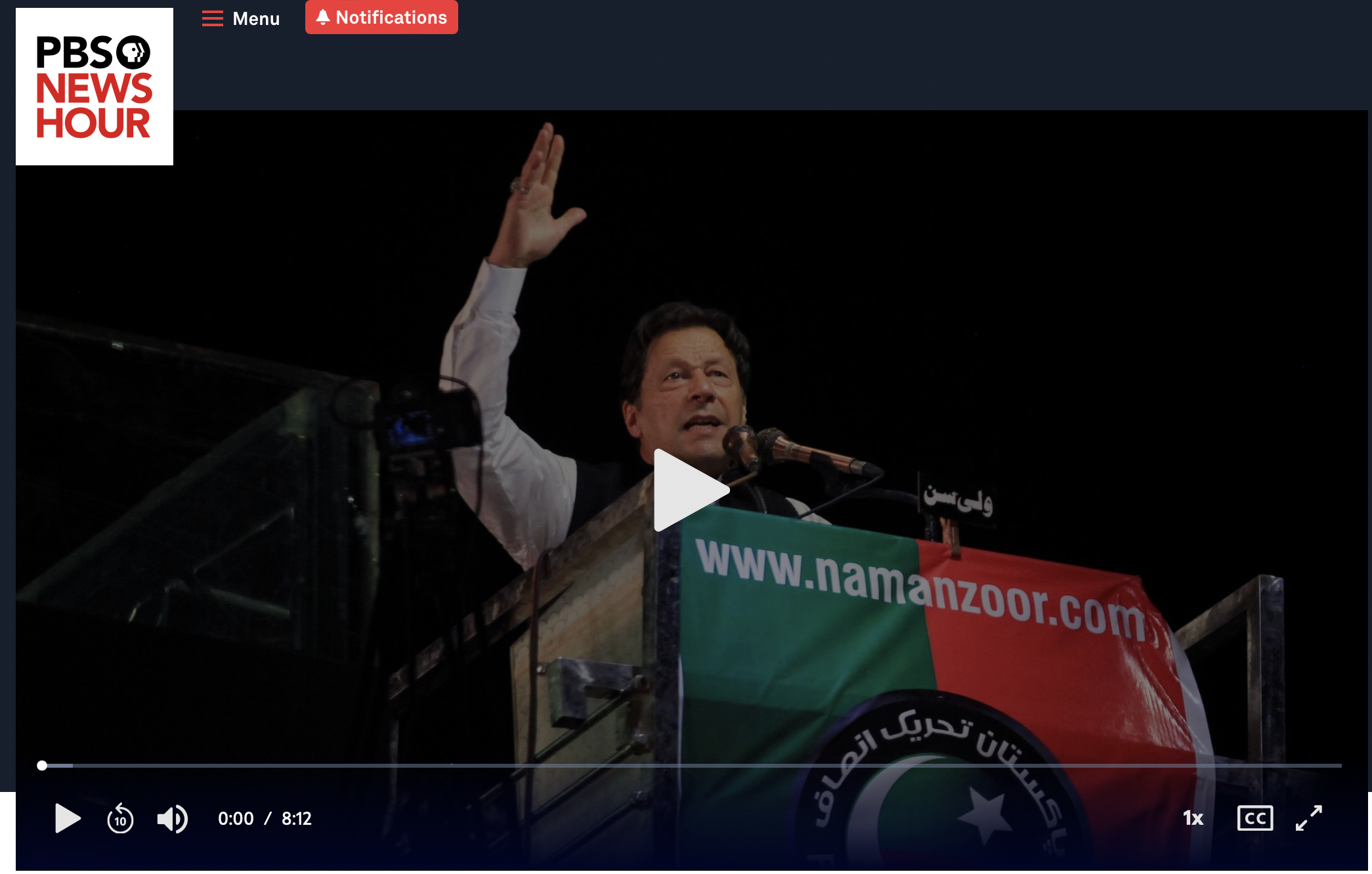Imran Khan’s Interview with PBS Corrected the Weaponized Misperceptions About Him

All Global Research articles can be read in 51 languages by activating the Translate Website button below the author’s name.
To receive Global Research’s Daily Newsletter (selected articles), click here.
Follow us on Instagram and Twitter and subscribe to our Telegram Channel. Feel free to repost and share widely Global Research articles.
***
Imran Khan’s latest efforts to set the record straight about himself and his policies are explicitly aimed at the American audience with a view towards assuaging any concerns they might have about him in the event that he democratically returns to office. Far from being the dangerous anti-American Islamic demagogue that his opponents have desperately tried to paint him as, he’s actually a purely peaceful leader with a pragmatic foreign policy driven by the desire to strengthen mutually beneficial relations with all of Pakistan’s partners.
Former Pakistani Prime Minister Imran Khan, who was ousted in early April by a US-orchestrated but domestically driven and superficially “democratic” post-modern coup passively facilitated by The Establishment as punishment for his independent foreign policy, recently gave an interview to PBS. (click screen below to Access PBS News Hour)
His latest media interaction came amidst speculation that something serious is going on behind the scenes in his country and occurred right before the appointment of a new Chief Of Army Staff (COAS).
The importance of his interview is that it has corrected the weaponized misperceptions about him that were spewed by his opponents over the past seven and a half months since the post-modern coup. This could in turn set the basis for new COAS Asim Munir to finally resolve Pakistan’s cascading crises caused by the regime change that his predecessor was connected to if he organizes free and fair elections as early as possible as well as investigates those accused of trying to assassinate the former premier.
After all, Imran Khan’s latest efforts to set the record straight about himself and his policies are explicitly aimed at the American audience with a view towards assuaging any concerns they might have about him in the event that he democratically returns to office sooner than later. With this in mind, the present piece will highlight the ways in which the former Prime Minister corrected the weaponized misperceptions that might have influenced average folks in that country:
- PTI’s Protests Are Purely Peaceful
The post-modern coup regime has misportrayed the protests organized by the former premier’s party as “disruptive” and “violent”, but the fact of the matter is that they’ve been purely peaceful expressions of Pakistanis’ constitutionally enshrined democratic rights.
- Early Elections Are The Last Chance To Save The Economy
Former Prime Minister Khan also explained his insistence on holding free and fair elections as early as possible, which his opponents have falsely claimed is nothing but demagogic rabble-rousing to destabilize their regime, as the last chance to save the economy by restoring political certainty.
- PTI Is Genuinely Popular
Another point that he clarified is that PTI is genuinely popular among Pakistanis as evidenced by their amazing performances during the recent spree of by-elections, which was made possible by people rallying around its pro-sovereignty message and democratically expressing discontent with the regime.
- Imran Khan’s Tenure Did Indeed Improve The Economy
Contrary to the regime’s false claims, Imran Khan’s tenure did indeed improve the economy and actually established the basis upon which it could have further grown had the regime change not occurred and global confidence in the country’s political stability crumbled as a result.
- US-Pakistani Relations Are Lopsided
Americans should always remember that their country actually has a very lopsided relationship with Pakistan wherein it dictates demands upon its “partner” under the pain of punishment if they’re not complied with, which is what Imran Khan wants to change upon returning to office, as is his right.
- The US-Indian Ties Can Be A Model For US-Pakistani Ties
The former premier shared his view about how US-Indian ties represent “a very civilized relationship, a dignified relationship”, which when coupled with his repeated praise of that neighboring country’s truly independent foreign policy, suggests that he envisages it forming the model for US-Pakistani ties.
- The Taliban Must Be Engaged
There’s no alternative to Pakistan pragmatically engaging the Taliban since failing to do so would impede its comprehensive connectivity with Central Asia as well as making it impossible for anyone to ever exert positive influence over them with a view towards improving women’s rights.
*
Americans should dwell upon everything that Imran Khan informed them of when setting the record straight about himself and his policies. Far from being the dangerous anti-American Islamic demagogue that his opponents have desperately tried to paint him as, he’s actually a purely peaceful leader with a pragmatic foreign policy driven by the desire to strengthen mutually beneficial relations with all of Pakistan’s partners, especially its traditional US one.
His return to office in the event of free and fair elections as early as possible, which is the only viable pressure valve for peacefully resolving Pakistan’s cascading crises alongside investigating those who he implicated in plotting his assassination, wouldn’t be against America’s interests. To the contrary, they’d align with them since that outcome would restore stability to this geostrategically positioned state, which would in turn make it a more attractive investment partner.
COAS Munir should therefore seriously consider encouraging the post-modern coup regime that he inherited to let the Pakistani people democratically decide who should lead them. Declining to do so would represent a lost opportunity for peacefully resolving Pakistan’s cascading crises. Critics shouldn’t fear the foreign policy consequences of former Prime Minister Khan’s return to office either since his latest PBS interview sought to assuage Americans’ concerns by showing that he can be a true partner.
*
Note to readers: Please click the share buttons above or below. Follow us on Instagram and Twitter and subscribe to our Telegram Channel. Feel free to repost and share widely Global Research articles.
This article was originally published on the author’s blog site, Andrew Korybko’s Newsletter.


